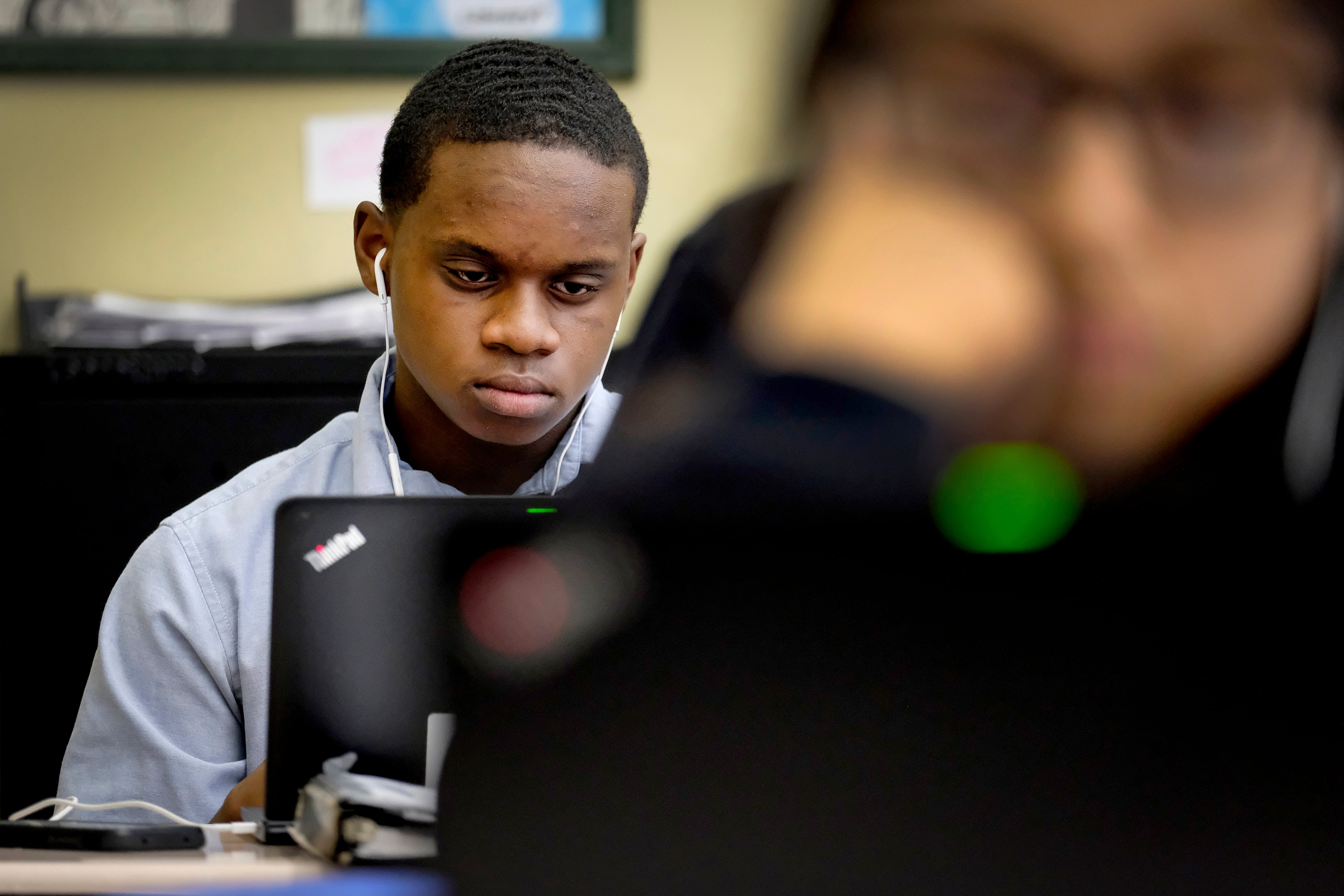School districts in Los Angeles and Baltimore have joined New York City in blocking access to ChatGPT, a new artificial intelligence-powered chatbot, as other districts evaluate the benefits and risks that accompany the new technology.
The program has spurred vibrant debate among educators in recent weeks, who have looked to the new technology with both fear and excitement over its potential impact on schools.
For some, the chatbot’s ability to generate complex and measured responses to academic prompts makes it a frighteningly powerful agent for cheating and plagiarism. Concerns earned ChatGPT a ban on all devices and networks in the nation’s largest school district.
New York City schools cited “negative impacts on student learning, and concerns regarding the safety and accuracy of content,” adding that “the tool may be able to provide quick and easy answers to questions, [but] does not build critical-thinking and problem-solving skills, which are essential for academic and lifelong success.”
Districts in Chicago and Philadelphia have not moved to block the program, spokespeople said.
The program, created by OpenAI, allows users to enter prompts and then generates responses using machine learning. That has some fearing it could offer students an easy out when faced with, for example, a high school English essay prompt.
Still, others have labeled the initial outcry alarmist and looked to the chatbot as an enticing new tool for teachers and schools. That potential has sparked some interest in Cobb County, Georgia.
“Like most technological tools, ChatGPT can support student learning, when used effectively,” a spokesperson for the local school district said. “In the hands of a high-qualified Cobb County teacher, it could be a valuable tool to supplement a student’s understanding of academic content and could help students develop critical thinking skills.”
With schools around the country beginning to evaluate ChatGPT, here’s where some of the nation’s largest school districts stand:
Los Angeles Unified School District in California
Last month, the district preemptively blocked access to ChatGPT on all networks and devices to “protect academic honesty, while a risk/benefit assessment is conducted.”
“In the meantime, we will continue to provide robust and relevant training and instruction in digital citizenship and computer science education for all school communities,” a district spokesperson said.
Chicago Public Schools in Illinois
ChatGPT is not blocked on school networks and remains under district review for potential risks to students.
In a statement, a spokesperson said Chicago Public Schools was “committed to providing students with a rigorous and engaging educational experience that incorporates technological advances. This includes tools that help students explore budding career pathways.”
School District of Philadelphia in Pennsylvania
ChatGPT is not blocked by the school district, a spokesperson said.
Baltimore County Public Schools in Maryland
In a statement, a spokesperson said “Baltimore County Public Schools has not created or changed policy as a result of ChatGPT, but we did block the site on student devices and browsers earlier in the school year.”
Prince George’s County Public Schools in Maryland
A spokesperson for the school district said ChatGPT is not currently blocked, but added it is under review.
Jefferson County Public Schools in Kentucky
Access to ChatGPT is not restricted at Jefferson County Public Schools, but the district said it is “constantly reviewing all websites, chatbots and other technologies to determine their value to student learning.”
“We make every effort to stay informed about emerging technologies and how they might impact our students’ learning, positively or negatively,” a spokesperson said. “To date, we have not had any concerns expressed to us about ChatGPT.”
Orange County Public Schools in Florida
The district has not made any policy changes regarding ChatGPT, but said staff “regularly monitors district devices for unauthorized programs or usage and responds accordingly.”
Northside Independent School District in Texas
The district has not taken any steps to block ChatGPT, but said it “continually evaluates numerous websites for instructional merit and has a web filter and other tools in place that can help address those that contain any content deemed harmful or disruptive to the instructional process.”
Julian Shen-Berro is a reporter covering national issues. Contact him at jshen-berro@chalkbeat.org .





